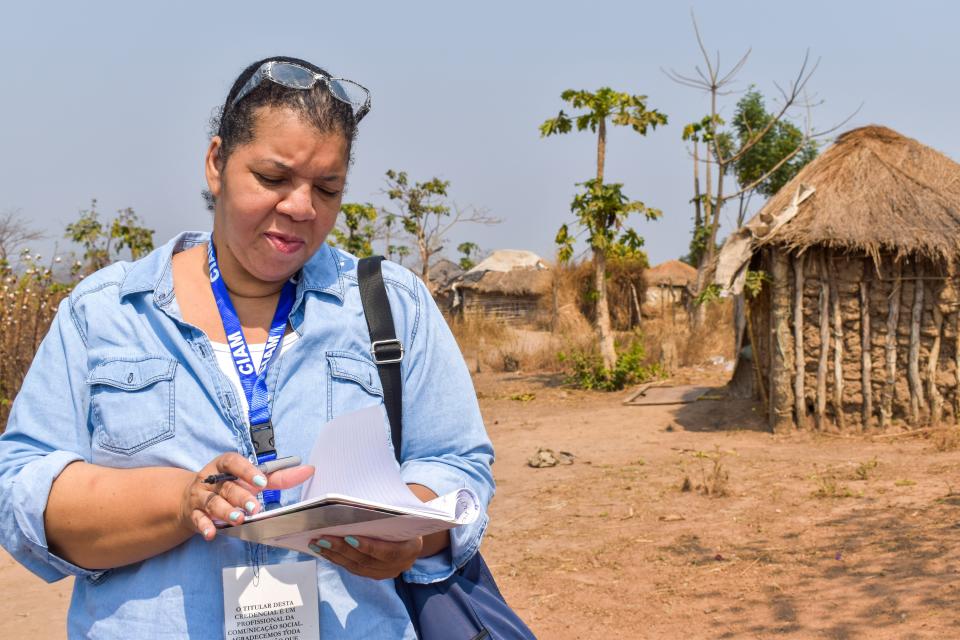Black History Month essay: I searched a continent a world away, hoping to find 'home'
"Where is home?" the author Sulaiman Addonia says, is a question he finds overrated. Home for him is not a physical place, it’s a feeling one can discover in a lover’s eyes or even a song. Addonia’s beautiful, sensual novel “Silence is My Mother Tongue” is somewhat autobiographical; he was born in Eritrea, raised in a Sudanese refugee camp and spent his teenage years in Saudi Arabia. For someone born into a life of nomadic uncertainty, his observations are understandable. For an African American descendant of enslaved people who were taken from their home country, it’s a truth to consider. But it doesn't quite satisfy my soul.
Addonia and I were part of a fast, fun clique of Western-based writers and journalists who bonded immediately among the thousands of kindred spirits at the Ake Arts and Book Festival in Lagos, Nigeria, last October. Director Lola Shoneyin invited us there to engage in panel discussions exploring the complicated relationship we Africans of the diaspora have with the continent we think of as home.
I explained how emotional the longing for connection is for African Americans – what we most want, I said, is to find the place where we see ourselves in the faces of the Africans around us.
Amazing that this desire came true for me in Nigeria. Wherever I went, I saw people who looked like me and the people I knew. I began to be excited about the idea of finding my roots.

In this year's Black History Month special edition, our eighth annual, we circle back to the questions of identity and agency we raised in the February 2019 Exodus issue. Journalist E.R. Shipp analyzed the murky beginnings of slavery and the role of the Tuckers of Hampton, Virginia as a founding family linked to the first “20 and odd” enslaved Africans brought to the English colonies. That story got our editor Nicole Carroll thinking about a much larger project: What if we took family historian Wanda Tucker all the way back to the roots she claims in Angola?
So a team of us from USA Today set out in late July to go around the world with Wanda to walk in the footsteps of the ancestors. We trekked from the land that was the heart of the Ndongo Kingdom and from which the Angolans were taken in chains, to the slave fort Massangano on the Kwanza River, to the harbor-side National Museum of Slavery outside Luanda. The museum has preserved a Central African history quite different from the West African slavery stories we’ve grown up hearing.
The result was USA TODAY’s 1619 Project, which is commemorated in the edition. To find more stories about Angola and the origins of slavery, see our project online at 1619.usatoday.com.
You can find the Black History Month 2020 special edition on newsstands throughout February and you can purchase it online here. Many stories from the edition will be featured online at blackhistory.usatoday.com.
As you browse it, you’ll also find stories on voting rights, the official black history theme we will be exploring all year. Democrat rising star Stacey Abrams shares her thoughts on the agenda for the black vote, and we look at political conservatism through the eyes of black Republicans. Felon reinstatement and the plight of nonviolent offenders still in prison are on the political radar as well. So be sure to check out one of our affiliated projects from one of our Opinion editors, Eileen Rivers, at lifers.usatoday.com.
Ripple effects from our 1619 work keep coming. Our lead project reporter, Deborah Barfield Berry, made a fantastic discovery about her own heritage. Read her story here. A friend of mine was so inspired by our work that he took Ancestry’s DNA test. To his surprise, he is 34% percent Nigerian. To his puzzlement, he is 1% Norwegian. He wants to visit both countries and embark on a whole new adventure in identity.
My brother and I got caught up in the DNA excitement too. The results of our African Ancestry MatriClan and PatriClan tests are due any day. Already our quest raises more questions than it answers: What’s the best way to tell our parents? Do they really want to know? Do we?
We wait anxiously for the answer to Addonia’s overrated question: "Where is home?"
—
Nichelle Smith is the coordinating editor of USA TODAY's Investigations team. She can be reached at nysmith@usatoday.com
This article originally appeared on USA TODAY: Black History Month: Searching, and hoping to find 'home'

